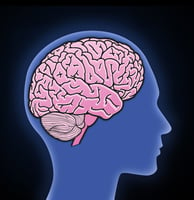Breakthrough in Cultured Neural Cells With Alzheimer's Could Speed Drug Testing
 |
Researchers at the Genetics and Aging Research Unit at the Massachusetts General Institute for Neurodegenerative Disease and several other institutions have successfully grown “Alzheimer’s in a petri dish,” as the breakthrough was called in a New York Times article. The work was published in a report in the journal Nature. “We have successfully recapitulated amyloid-β and tau pathology in a single 3D human neural cell culture system,” the researchers stated.
Alzheimer’s experts say the breakthrough could dramatically speed the testing of drugs for treating AD. “This is a ground breaking study that will enable researchers to investigate the process of progression of Alzheimer’s disease and, more importantly, test large numbers of possible treatments in a relatively short order,” past APA President Dilip Jeste, M.D., (pictured above) told Psychiatric News. “Clinical trials take a long time to complete, and animal models such as those using mice or rats have uncertain applicability to the human disease. I believe these investigators’ work will open the door to study many other brain diseases too.” Jeste is a distinguished professor of psychiatry and neurosciences and the director of the Sam and Rose Stein Institute for Research on Aging at the University of California, San Diego.
“One note of caution is that we do not know to what extent plaques and tangles in a petri dish replicate the complex living brain of a person with Alzheimer’s disease,” Jeste added. “Nonetheless, this work opens a new and exciting line of research into neurodegenerative and other brain diseases.”
For more on AD research, see the Psychiatric News article, “High BDNF Levels May Offer Protection Against Alzheimer’s.” Also see the book Clinical Manual of Alzheimer Disease and Other Dementias from American Psychiatric Publishing.





